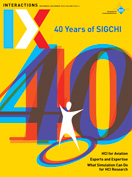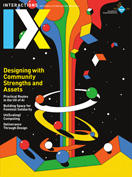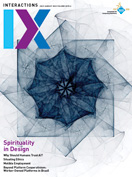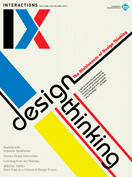Authors:
Gavin Doherty, Åsa Cajander, Jan Gulliksen, Conor Linehan
Building on funding from the SIGCHI Summer/Winter Schools Program (2017), Trinity College Dublin and KTH in Stockholm, with support from Stockholms läns landsting, ran a summer school on the topic of e-health. It took place over the course of two weeks, the first in June in Dublin, the second in August in Stockholm. We felt the event went very well, so we're reporting here on our experience.
Demand is high. There was a very high level of demand for training on this topic. In response to the first call, we received approximately twice as many applications as places available. As a result, we had to turn down many high-quality applicants. This poses a bit of a quandary, as while we would like to give as many people as possible the chance to participate, venues, accommodation bookings, and budgets are typically not easy to change. In future events, we would have a plan to deal with high demand and some capacity to meet it. We had 35 highly motivated student participants, 24 female, 11 male. As the volume of work on healthcare within HCI continues to grow, it's pretty clear we need more events like this; we would be happy to contribute to them.
Funding. We leveraged the SIGCHI funding to obtain additional funding from EIT Health. This was hugely helpful (neither Dublin nor Stockholm is famous for being inexpensive), facilitated recruitment, and makes EIT Health alumni opportunities available to students.
Recruiting contributors is easy. The program included lectures, case studies, invited talks from international experts, and hands-on design exercises, including work with patients. As we were building the program, we put together a wish list of high-profile speakers on the design of e-health systems—all of them accepted (leaving us with a very busy schedule!). Our speakers included researchers at different career stages, from industry, academia, and public service. Overall, 34 experts contributed to the program, with 21 female and 13 male contributors. Contributors came from the U.K., the U.S., Ireland, Austria, the Netherlands, and Sweden. We are hugely grateful to all of them for giving so generously of their time.
Patient participation. Patients were included throughout the Dublin week through the collaboration of the Irish Platform for Patient Organisations, Science and Industry (IPPOSI; ipposi.ie), a patient-led organization that seeks to influence both health policy and innovation. Patients found value in their participation, and everyone involved saw this as a hugely positive part of the Summer School. Particularly for project work concerning chronic health conditions, patient perspectives provided valuable insight. Their involvement also brings home to the students both the way technology affects real people as well as the expectation that patients should be involved as a matter of course.
Don't overdo it! In the second week in Stockholm, we pulled back on the hectic speaker schedule of the first week and included more time for project work and networking. We included a practical workshop day in the KTH Visualization Studio, and an offsite day at Uppsala University with a focus on the groundbreaking work done in Uppsala, and progressively across Sweden, on full online patient access to all of their own health records. We were privileged to hear from the people driving this process (in the face of fierce opposition!). It was great to hear from and talk to people who had succeeded in patient-centered innovation at the largest scale.
Jonas Moll: https://molljonas.wordpress.com/2017/07/01/ehealth-summer-school-in-dublin-day-5/
Christiane Grünloh: https://www.htogroup.org/2017/07/08/behaviour-change-social-practice-theory-and-learned-helplessness/
Twitter: see #ehealthschool
Gavin Doherty is associate professor at Trinity College Dublin and co-founder of SilverCloud Health. [email protected]
Åsa Cajander is associate professor of human-computer interaction at Uppsala University. [email protected]
Jan Gulliksen is professor in human-computer interaction at KTH Royal Institute of Technology and dean of the School of Computer Science and Communication. [email protected]
Conor Linehan is a lecturer in applied psychology at University College Cork. [email protected]
Copyright held by authors
The Digital Library is published by the Association for Computing Machinery. Copyright © 2018 ACM, Inc.







Post Comment
No Comments Found